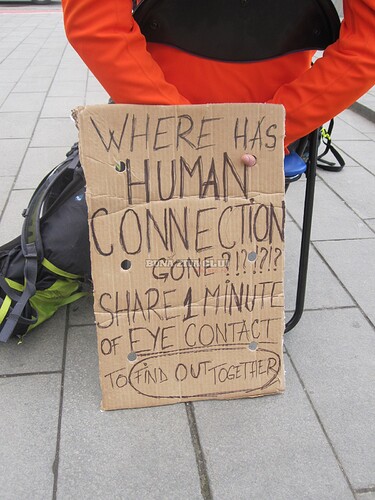The eyecontact experiment
A very basic event which happened in a lot of cities over the last years, including where I live (Cluj) was to have hundreds of people - strangers - staring in each others eyes for one long minute, two by two. After that, one would stand, leave and go to sit with someone else. And so on. It was an interesting human connection experiment, although it mostly brought young people in.
More about this and a video: The Touching Truth Behind the Eye Contact Experiment | Inspiralight
